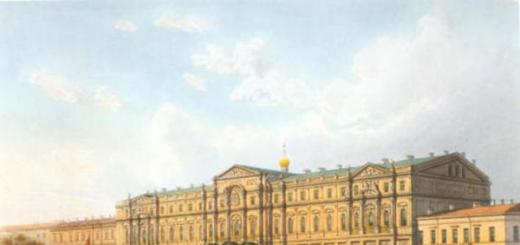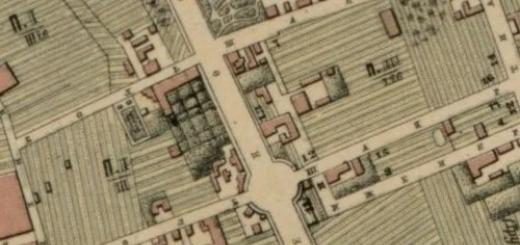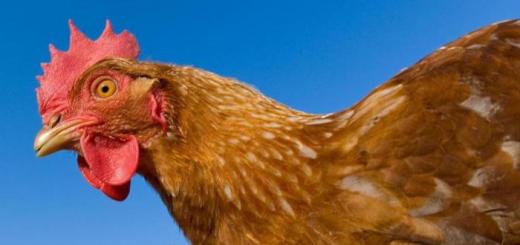Invisible Man. Wells Herbert
Invisible Man. Roman (1897)
In the inn "Coachman and Horses", owned by Mrs. Hall and her henpecked husband, in early February, a mysterious stranger appears wrapped from head to toe. Getting a guest on a winter day is very difficult, and the visitor pays generously.
His behavior seems more and more strange, more and more alarming to those around him. He is very irritable, avoids human society. When he eats, he covers his mouth with a napkin.
His head is all wrapped in bandages. In addition, the Aiping provincials (a place in southern England) do not understand what he is doing. The smells of some chemicals are spreading around the house, the sound of broken dishes, loud curses that the tenant pours (obviously, something does not work out for him).
Griffin, whose name we will learn much later, strives to regain his former state, to become visible, but fails and becomes more and more annoyed. In addition, he ran out of money, they stopped feeding him, and he goes, using his invisibility, to a robbery.
Of course, suspicion falls on him first.
The hero is going crazy. He is by nature an irritable person, and now this is manifested most clearly. Hungry, exhausted by constant failures with experiments, he takes an insane step - gradually, in front of everyone, tears off his disguise, appears before the observers as a man without a head, and then completely dissolves into the air. The first pursuit of the Invisible ends happily for him.
In addition, while escaping his pursuers, Invisible Man runs into Marvel's vagrant, called Mr. Marvel, perhaps because he invariably wears a shabby top hat and is very picky about shoes. And no wonder - nothing is so necessary for a tramp as good shoes, albeit donated ones.
At one fine moment, trying on and evaluating new shoes, he hears a voice resounding from the void. Among the weaknesses of Mr. Marvel is a passion for alcohol, so he does not immediately manage to believe himself, but he has to - an invisible voice explains to him that he saw in front of him the same outcast as himself, took pity on him and at the same time thought that he could help. After all, he was left naked, driven, and Mr. Marvel needed him as an assistant. First of all, you need to get clothes, then money. Mr. Marvel at first fulfills all the requirements - especially since the Invisible Man has not left his aggressive attacks and is a considerable danger. In Aiping, preparations are underway for the holiday. And before finally leaving Aiping, Invisible arranges a rout there, cuts telegraph wires, steals the vicar's clothes, takes away books with his scientific records, loads poor Marvel with all this and is removed from the field of view of local inhabitants. And in the surrounding areas, people often see handfuls of coins flashing in the air, or even whole bundles of banknotes. Marvel is trying to run away, but every time Griffin's voice stops him. And he remembers very well what tenacious hands the Invisible Man has. IN last time he was about to reveal himself to a sailor he happened to meet, but immediately discovered that the Invisible Man was nearby, and fell silent.
But only for a while. Too much accumulated in the pockets of money.
And then one day Dr. Kemp, sitting quietly in his rich house filled with servants and busy scientific work, for which he dreamed of being awarded the title of member of the Royal Society, saw a rapidly running man in a shabby silk top hat.
In his hands were books tied with twine, his pockets, as it turned out later, were stuffed with money. The route of this fat man was extremely accurate.
At first he hid in the Merry Cricketers' pub, and then asked to be escorted to the police as soon as possible. Another minute - and he disappeared into the nearest police station, where he asked to be immediately locked in the most reliable cell. And Dr. Kemp's doorbell rang. There was no one behind the door.
The boys must have been having fun. But an invisible visitor appeared in the office.
Kemp found a dark stain on the linoleum. It was blood. In the bedroom the sheet was torn, the bed crumpled. And then he heard a voice: "My God, it's Kemp!" Griffin turned out to be Kemp's university friend.
After Mr. Marvel, frightened half to death, hid in the Merry Cricketers tavern, the Invisible Man, obsessed with a thirst for revenge, tried to break through there, but it ended in disaster.
Invisible Man was already trumpeted in all the newspapers, people took security measures, and one of the visitors to the Merry Cricketers, a bearded man in gray, judging by the accent, an American, turned out to be a six-shooter revolver, and he began firing fan-shaped at the door. One of the bullets hit Griffin in the arm, although the wound turned out to be harmless.
Griffin is a talented scientist, on the verge of genius, but his career was not in the best way.
He was engaged in medicine, chemistry and physics, but, knowing what morals reign in the scientific world, he was afraid that his discoveries would be appropriated by less gifted people.
In the end, he had to leave the provincial college and settle in some slum London house, where at first no one bothered him. There was just no money. This is where Griffin's chain of crimes begins.
He robs his father, taking other people's money from him, and he commits suicide.
It is necessary to escape from the house that has become uncomfortable. But for this, you first have to become invisible. And it's a painful process. The body burns like on fire, he loses consciousness. He is terrified at the sight of his own body becoming as if transparent.
When the householder and his stepchildren burst into the room, surprisingly, no one is found in it. And Griffin for the first time feels all the inconvenience of his position. Going out into the street, he notices that everyone who is not lazy is pushing him, cabbies almost knock him off his feet, dogs are chasing him with terrible barking. Gotta get dressed. The first attempt to rob the store ends in failure - But then he comes across a poor shop, littered with second-hand make-up accessories. Its owner is some unfortunate hunchback, whom he ties in a sheet, thereby depriving him of the opportunity to escape and, most likely, dooming him to starvation. And from the shop comes the same person who will later appear in Aiping. All that remains is to cover up the traces of your stay in London. Griffin sets fire to the house, destroying all his drugs, and hides in southern England, from where, if desired, it is easy to move to France. But first you need to learn how to move from the invisible to the visible state. However, things are not going well. The money has run out. The robbery is revealed.
Organized chase. Newspapers are full of sensational reports. And in this state, Griffin appears at Dr. Kemp's - hungry, hunted, wounded. He used to be an unbalanced person, and now he has a mania of misanthropy. From now on, he - the Invisible One - wants to rule over people, establishing a reign of terror for decades. He persuades Kemp to become his accomplice. Kemp realizes that before him is a dangerous fanatic. And he makes a decision - he writes a note to the head of the local police, Colonel Edlai. When he appears, Griffin is initially reluctant to touch him. "I didn't quarrel with you," he says. He wants the traitor Kemp.
But they are already looking for the Invisible One - according to the plan drawn up by Kemp. The roads are strewn with crushed glass, mounted police officers are galloping all over the district, the doors and windows of houses are locked, it is impossible to get into passing trains, dogs are prowling everywhere, Griffin is like a hunted animal, and a hunted animal is always dangerous. But he still needs to take revenge on Kemp, who, after the murder of Adlai, turns from a hunter into a pursued one. A terrible invisible enemy is chasing him. Luckily, already. On his last breath, Kemp finds himself in a crowd of fellow countrymen, and then Griffin is waiting for the end. Kemp wants to save him, but the people around him are relentless. And gradually, before everyone's eyes, a beautiful, but all wounded man reappears - Griffin is invisible as long as he is alive.
Meanwhile, Mr. Marvel has dressed up, bought the Merry Cricketers' tavern with the money stolen from Griffin, and is highly respected in the district. And every evening he locks himself away from people and tries to unravel the mystery of Griffin. Almost his last words: "Here was the head!" Yu. I. Kagarlitsky Griffin, a strange stranger ("he was wrapped up from head to toe, and the wide brim of a felt hat hid his entire face") with a small luggage, consisting of two suitcases filled with papers, books and mysterious vessels, appears in the house Mrs Hall. He attracts the owner of the guest house by his readiness to stay for a long time and pay decently. The main requirement made by G. to the mistress and tenants of the house is the observance of his sovereignty and loneliness.
Alerted by the mysterious behavior of the "guest", the inhabitants of Aiping soon expose the invisibility. Only Kemp, a university friend, G. tells his story. Being engaged in medicine, physics, and in particular the problems of optical impermeability, G. deduces a formula expressing the general law of pigments and refraction of light. Hoping to make a great discovery, gain power and freedom, a poor college assistant conducts experiment after experiment.
In need of money, he robs his father, depriving him of other people's money, as a result of which he commits suicide. Not tormented by guilt, G. blindly strives for the realization of the plan. Finally, after prolonged moral and physical torment, G. becomes invisible. The discovery reveals its destructive power.
Invisible-G. turns out to be socially dangerous. With the help of invisibility, he tries to achieve unlimited power, proclaims new era humanity - an era of terror and violence. G.'s first victim is an ordinary passer-by.
The idea is disastrous for the invisible person himself. G. acquires not only freedom and the ability to penetrate everywhere. He is even more insecure and vulnerable than before. "Invisibility allowed a lot to be achieved, but did not allow using what was achieved." Exhausted by hunger, cold, wounds, he dies "on a miserable bed, in a wretched room, among an ignorant, excited crowd, beaten and wounded, betrayed and ruthless, hunted, having finished his strange and terrible life path". Physicality returns to the dying G.. The eyes of the crowd, distraught with fear and curiosity, "see a naked, pitiful, murdered and mutilated body stretched out on the ground ... with an expression of anger and despair on his face."
Bibliography
For the preparation of this work, materials from the site http://lib.rin.ru/cgi-bin/index.pl were used
Main character novel Griffin, the invisible man, a brilliant scientist who made amazing discovery, but did not present him at the scientific council, as he was afraid that his invention would be appropriated by a not as talented inventor as he was. The invisible man commits many crimes, he hates people and wants to control them. In pursuit, he meets the poor fellow Mr. Marvel, whom he forces to help him. As a result, the poor fellow can not stand it and hands him over to the police. Invisible is killed, and he becomes visible.
The novel teaches that one should not interfere with nature, otherwise it can lead to irreversible consequences.
Read the summary of Wells' Invisible Man
The action of the novel takes place in the tavern "Coachman and Horses". In this place, in the bitter cold, out of nowhere, a strange stranger appears. For this time of year it's a rare thing. The owners of Mrs. Hall and her husband are happy with the guest, but this happiness does not last long. People around begin to notice the stranger's unusual behavior. He is wrapped from head to toe, covering his mouth when he eats. No one knows what the guest is doing. Cursing words and the noise of breaking dishes are constantly heard from the room, it smells chemicals. Apparently Griffin, that's how to call a stranger, something does not work out.
The hero wants to return to his former appearance, but it does not work out for him, so he is very angry. Griffin ran out of money and, using his fortune, he decided to rob.
The scientist is gradually losing his mind. By himself, he is an unrestrained, irritable person, which is clearly seen in the last period of his life. Griffin makes a rash act. In front of a large audience, he takes off his disguise and appears before everyone as a headless man, and then completely disappears. For the first time, Invisible managed to elude law enforcement. While chasing, Griffin runs into poor Mr. Marvel, who was wearing a tattered black top hat and admiring his boots.
While the tramp was trying on shoes, he heard a voice from the void. Mr. Marvel liked to drink alcoholic beverages and therefore at first did not even pay attention to it. But an unknown voice explained to him that he saw the same unfortunate person as he himself and decided to ask him for help. First of all, Invisible asked to find clothes and money. At first, Mr. Marvel clearly did everything that the hero instructed him, since Griffin still did not lose his tyrannical behavior and could be very dangerous. In Aiping there is a thorough preparation for the celebration. Invisible arranges a complete rout there, takes his personal belongings. Marver wants to run away from the tyrant, but he fails. He repeatedly tried to tell the police everything, but he was stopped by a voice from the void. Marvel understood perfectly well what this threatened him with. But he wasn't going to remain silent forever.
One day the talented Dr. Kemp was sitting at home doing scientific work. And suddenly he saw a man who was running in a black top hat with a pile of books. The stranger was hiding in the Merry Cricketers tavern. Then he went to the nearest police station.
Kemp heard the doorbell ring, but no one came. The doctor thought that the local boys were frolicking, but he saw blood stains on the carpet, crumpled bed linen. Suddenly, Kemp heard an invisible voice. Griffin recognized his classmate.
Invisible decided to take revenge on Mr. Marvel, but he could not get into the tavern. The city has long been aware of the Invisible, all the newspapers wrote about him. One visitor had a pistol in his hands, with which he wounded Griffin in the arm. He came to Kemp.
Griffin told a classmate how he got to this point.
Griffin is an outstanding scientist, but he failed to realize himself in scientific activity. He was a specialist in medicine and exact sciences. The hero knew perfectly well what was going on in the scientific department and therefore was afraid that his brilliant discoveries would be appropriated by another not as talented scientist as he was. He began to live in a small London house and engage in science. Everything was fine until he ran out of money. Griffin steals his father's savings. The latter commits suicide. The hero does not regret anything, he is completely immersed in his discovery. The day Griffin has been waiting for is coming. He feels that his body is on fire, he becomes ill.
When the owners enter the house, they do not find the guest. Griffin sets fire to the house, completely destroying the records of his discovery.
The hero hates all people. Invisible wants to subjugate all of humanity and invites Kemp to cooperate with him. The latter realizes that he is talking to an abnormal fanatic. He turns to the police to Colonel Adlai. At first, Mistyfoot does not want to deal with the Colonel, but in the end, he kills him.
The Invisible is being chased. He was caught. Now a handsome, wounded man appeared before the people. Griffin was invisible alive, and dead - became visible.
Mister Marvel used the money he took from the Invisible Man to buy clothes, a tavern, and began to live happily ever after.
And the publicist Herbert George Wells is the author of many fantastic works that glorified him throughout the world and translated into many languages: "The Time Machine", "The War of the Worlds", "People Are Like Gods", "The Island of Dr. Moreau" and others. Fantasists have repeatedly predicted incredible scientific discoveries, this is a well-known fact. Wells, by the way, long before Einstein and Minkowski showed in the novel The Time Machine that real world is nothing more than a four-dimensional space-time substance.
In another book ("War of the Worlds"), the writer predicted modern wars with the use of toxic substances and What did Wells come up with in his most paradoxical and popular work - "The Invisible Man"? Summary The answer to this difficult question would sound like this: his hero made an attempt to change and speed up the vital processes in the body. How seriously the scientific community takes writer's fantasy can be seen from the fact that the book caused a storm of discussion. The calculations were made the most reasoned with scientific point vision. The conclusion of scientists was unequivocal: the invisible state contradicts common sense, which means it is impossible. This dispute began in 1897, from the moment the work was published, and has not yet ended.

So, Herbert Wells, "The Invisible Man", a summary of the novel. The main character, the brilliant physicist Griffin, appears in a small tavern on a chilly day, wrapped in a raincoat and hiding his face under a hat, bandages and huge glasses. It is impossible not to notice his strangeness, he arouses the curiosity of others.
Gradually, the reader learns that the strange visitor, whom G. Wells describes from the first lines, is an invisible man. He tells his story to an old friend, also a scientist named Kemp, and the reader will then find out what happened to him. Griffin conducted experiments, invented an apparatus that makes a living organism invisible, and a drug for bleaching blood. When there was not enough money for experiments, he conducted the experiment on himself, deciding to take on such an unusual appearance and get a lot of benefits from it. But everything turned out to be not so simple, and Wells vividly describes his ordeals.
"The Invisible Man": a summary of the novel about the superman

Yes, this is precisely the task the author sets himself: the evil genius, who has opposed himself to all mankind, cannot and should not survive. It is strange that the filmmakers allowed themselves to interpret the accents that Wells clearly placed in a different way. "The Invisible Man" (a summary of the idea of the film of the same name by A. Zakharov) found such an embodiment on the Russian screen: Griffin is a misunderstood talent, and Kemp is an evil genius who is trying to prevent him from making great discoveries to save humanity. It's not like that in the novel. G. Wells himself has an inversely proportional relation to this. The invisible man (the brief summary cannot contain all the brightness of the dialogues and discussions of the characters) is the same evil genius who wants to create a reign of terror and, through the fear of people, seize power over the world. But he is powerless alone, he needs shelter, food, help, and therefore he came to Kemp's house.
He, however, is not going to help him, he understands that the madman must be stopped, and calls the police in secret from his guest. The persecution of Griffin begins, and he, in turn, opens the hunt for a friend who betrayed him. The reader catches himself thinking that sometimes he sympathizes with this anti-hero - he experiences too sophisticated methods of persecution, as Wells describes, the invisible man. The summary of the book quite vividly conveys the inhuman suffering that a person who wished to rise above everyone found himself in.

The hero is very vulnerable: he is invisible only completely naked, but if he gets hurt or dirty, takes food or water, he begins to leave traces. This is what hunters use. The roads are strewn with broken glass, the whole world is up in arms against him and is persecuting him. After all, he is only alive and unharmed, as Wells writes, an invisible man. The main characters, perhaps, are himself, the evil genius who challenged humanity, and the rest of humanity. And he is defeated. Life leaves him, and gradually the transparent outlines of a pathetic, wounded, naked “superman”, an albino Griffin, who turned his talent as a scientist into evil, gradually appear on the earth. And so he lost.
3.053. Herbert George Wells, The Invisible Man
Herbert George Wells
(1866-1946)
English writer and public figure, Doctor of Biology Herbert George Wells (1866-1946) entered the history of world literature as the author of science fiction novels (The Time Machine, The Island of Doctor Moreau, The War of the Worlds, etc.).
He is no less famous as a master of social satire in a number of social and utopian novels (“Tone-Benge”, “People are like gods”, etc.).
Having left to humanity one hundred volumes of prose, philosophical, historical and sociological works, socio-political forecasts, articles on armaments and nationalism, children's books and a memorable book for us - "Russia in the Dark", Wells for millions of readers around the world is, first of all, the author of the masterpiece - the novel "The Invisible Man" - "The Invisible Man" (1897).
"Invisible Man"
(1897)
It was his passion for journalism that led the young biology teacher to write this novel. The editor of the weekly "Pall Mall Gazette" L. Hind asked him to write a series of stories about modern science. Wells wrote the story "Stolen Bacillus" and an article about time travel, and, repeating the fate of J. Verne, he entered literature. Then the story “The Argonauts of Chronos” was written by itself, a novel began to be written, which included everything that worried the writer. After discarding several storylines, Wells created his first science fiction novel, The Time Machine. He used the discarded pieces in The Invisible Man.
The "grotesque" novel saw the light in 1897. It did not arise from scratch. At the end of the XIX century. Europe has gone mad from the ideas of F. Nietzsche and the “supermoral” “superman” drawn from his Zarathustra. Those in power, and under this power, the intellectuals-"creators" who drank to their heart's content, were in the hands of the idea of a superman who has the right to command and destroy the "trembling creature."
It was this idea that Wells exposed in the image of the invisible, which after his death became visible, i.e. exactly like everyone else. Invisible was originally doomed by the author to death. Wells, very sensitive to scientific research and technological progress in general, was the first of the writers to catch the threat to humanity emanating from them and pointed out retribution against the "inventors" even during their lifetime. His main message was: in the present, the most important thing is what future it prepares. At the same time, he set modern society grim diagnosis.
“The stranger showed up in early February. On that frosty day, the wind and blizzard raged - the last blizzard this year; however, he came from Bramblehurst railway station on foot." So in the provincial Aiping, which is not on the world map, someone like a scarecrow came, and the “invisible man” Griffin entered the world of world literature.
This unique hero, whom the other characters in the novel saw for the first time only after his death, helped readers to see the ulcers of the society in which they live. Invisible entered Aiping to bring to the end Scientific research and hide from society their "tears invisible to the world" (sic!). At the ideological level, his appearance brought with it the question: is there a place for the superman in life?
Settling in the coachman and horses tavern, Griffin filled his room with bottles of chemicals, test tubes, instruments and took up chemical experiments. All this aroused displeasure and suspicion among the owners and visitors of the tavern.
Appearance, unsociableness and irritability of the guest only added fuel to the fire. Everyone wondered if he was a criminal, an anarchist making explosives, or just crazy. In addition, Griffin ran out of money, and with them all respect for him.
When a theft happened in a neighboring house at night, and the next morning the guest found money, the townsfolk wondered where he got it from. Cornered, Griffin furiously tore off his bandages, stripped off his clothes, and naturally disappeared. In the general dump he managed to escape.
Having met the tramp Marvel, the Invisible Man forced him to serve himself: he gave him his diaries and money stolen from the tavern for safekeeping. However, the tramp, frightened to death, decided to hide from the owner; he began to pursue him, was wounded and was forced to seek shelter himself in the mansion, where he met Dr. Kemp, who studied with him at the same university.
Kemp sheltered an intruder, and he told him about the essence of his invention and about his misadventures. Having spent all the money on experiments, Griffin robbed his own father. The money was someone else's, and the father shot himself.
Becoming invisible, Griffin left behind a chain of misfortunes and crimes: he burned the house where he conducted experiments, robbed a shopkeeper and doomed him, bound, to starvation ...
Enraged by his failures and clashes with the townsfolk, Invisible set out to establish a reign of terror, first within the boundaries of one city, and then "on a global scale."
Griffin failed to make Kemp his assistant, although he dropped the phrase that with a million assistants it was not difficult to establish a reign of terror. (It was not for nothing that later he undertook a search for Griffin's diaries.) The doctor managed to report his guest to the police, but he could not be captured.
The Invisible was hunted down as wild beast. The hunted fugitive responded immediately and brutally. His first victim was a peaceful passerby. A mad scientist would have done many more troubles, but during an attempt to punish Kemp, he was killed by diggers.
“The body was covered with a sheet… and taken into the house. There, on a miserable bed, in a wretched, dim room, among an ignorant, excited crowd, beaten and wounded, betrayed and mercilessly hounded, Griffin ended his strange and terrible life, the first of the people who managed to become invisible. Griffin is a brilliant physicist, the equal of which has not yet seen the light.
Many years later, the owner of the "Invisible Man" tavern, the former tramp Marvel, spent all his free time studying Griffin's records, trying in vain to comprehend the secret of the failed "superman".
At first, critics of The Invisible Man were not accepted. After Wells' previous novel, The Time Machine, where the writer told people about the relativity of time, for which he was called a genius, they did not see any new ideas or artistic merit in the everyday plot.
The idea itself seemed banal. The mythology and folklore of any country is full of invisible people: as soon as they eat or drink something, or put on a hat, cloak, sandals, they immediately become invisible. True, they have more comfortable living conditions: they do not need, like the hero of Wells, to hide from the townsfolk and roam the winter streets naked, suffering from cold and hunger, from bitterness and colds.
Physicist critics argued that the invisible man was doomed to blindness, dead cells of the body, acids, slags, electrical flashes in the brain, etc., would be visible in it.
Philological critics have drawn parallels with fairy tale characters; noted that Wells developed in his novel the theme of metamorphoses described by R. Stevenson in The Strange Case of Dr. Jekyll and Mr. Hyde; recalled a 40-year-old story by the American writer F.-J. O "Bryan "Who was it?" about some invisible being.
For critics, the theme of borrowing is as old as the world. But if we take into account that “Romeo and Juliet” was written before Shakespeare, and “Faust” before Goethe, but they were still written by W. Shakespeare and I.V. Goethe, then the "Invisible Man", unique in its originality, was created not by its predecessors, but by G. Wells.
However, critics are critics, and readers are readers. Less than a year later, critics were forced to listen to the enthusiastic opinion of the public and Wells' colleagues (J. Conrad, for example, called him a "realist of fiction", and G. James admired the fact that he possessed "charms" - the gift of bewitching readers ) and begin to admire like an inexperienced public in discourse.
“In HG Wells, to see is to believe, but here we believe even in the invisible,” one of them remarked. Since that time, Wells has won the title of "writer who knows how to think."
At the age of 29, he became a classic - and first of all, it was for The Invisible Man. The writer, like no one else who knew how to combine impeccable logic and vivid imagination in his work, was liked by everyone - both "physicists" and "lyricists". According to the author of the famous anti-utopia "We" E. Zamyatin, "Wells' myths are logical, like mathematical equations."
After Wells, the theme of invisibility turned into a cash cow for science fiction writers, even the great ones (J. Chesterton, the aged J. Verne, H. Gernsbeck, R. Bradbury). However, say today: - Invisible ... - and then they will add: - Wells.
The novel was translated into Russian by D. Weiss.
"The Invisible Man" has been repeatedly filmed abroad. In the USSR, the film of the same name was shot in 1984 by director A. Zakharov.
Reviews
And "The Invisible Man", and "War of the Worlds", and something else - brilliance, brilliance, brilliance. But still, I was impressed more than all these masterpieces at the time by "Acute Doctor Moreau". You, as always. hello and respect for your colossal educational work. For millions of fellow citizens, at least to some extent (if they find themselves here, on Prose), will learn something truly useful for themselves. And the enlightened, who have forgotten much of what they used to know and what they were fond of, will remember with gratitude and glorify the enlightener.
My first book at the academy was The Invisible Man. I am terribly behind in age in terms of the number of books I have read in my life, I am trying hard to somehow catch up, and therefore I tried to choose the most famous books, so to speak, which you must read in your life.
So, the invisible man. Me, unfortunately The book felt like it was a bit of a waste of time. Probably, at the beginning of the 20th century, it was read as something very interesting, the idea itself was probably new and unusual, and therefore very attractive. In our age, when there are spider-men, elves, robots, magicians, zombies, and so on - the invented image of the invisible seems to be just one of them. And so I tried my best to abstract. It’s as if for me such a phenomenon is straight wow-news! And so the beginning went somehow sluggishly, Griffin immediately began to piss me off, and with his boorish behavior, and attitude, yes to everyone) But then, when he began to explain from a scientific point of view, how this is all possible, it became much more interesting) Immediately she began to think over this idea, remembering the laws of optics, all that... True, this chapter ended rather quickly, and the story moved on. By the way, I personally thought that everything was somehow chaotic, fast. Now he became invisible, now the adventures began, and now the end. It will not be enough, it would be possible to develop the idea into a much longer book. And I was especially struck by how it was possible to be such a smart person, a scientist, and not foresee anything, not calculate so much. And why the hell did he strip naked at all?) Couldn’t you have carried out your experiments right in your clothes?) (and I’m also very sorry for the cat, poor animal, it turned out to be at the wrong time, in the wrong place)
So. Either HG Wells was a complete pessimist, or I don't know. Yes, with such a thing as invisibility, you could do so many things! And he showed only the most unfortunate failure option. It's a shame for the idea) I would ... wow! ....)
But it turned out, as they like to say, vital. True, I do not understand why vital is most often bad. The character of the protagonist is heavy (this is a very decent term, I want to say a little different ..), the story is sad, the end is deplorable.
Probably, I wanted to show how scary it is to suddenly be invisible. In society. To be in society physically, but not to be in all other senses. But it’s just hard for me to understand, I’m an introverted introvert and I don’t suffer without society. Rather the opposite. But how it was possible not to cope with the situation - this is for me the main problem of this work. And then, so that the cuckoo was demolished in general. Somehow I read it to the end - and I'm not sorry at all. Well, maybe a little. But basically - what he fought for, he ran into. Crazy crazy selfish scientists are interesting only in books and TV shows (Sheldon, Sherlock) - but in life - have fucking respect for people, learn to communicate politely, think not only about yourself, you see, and everything would have turned out differently.










